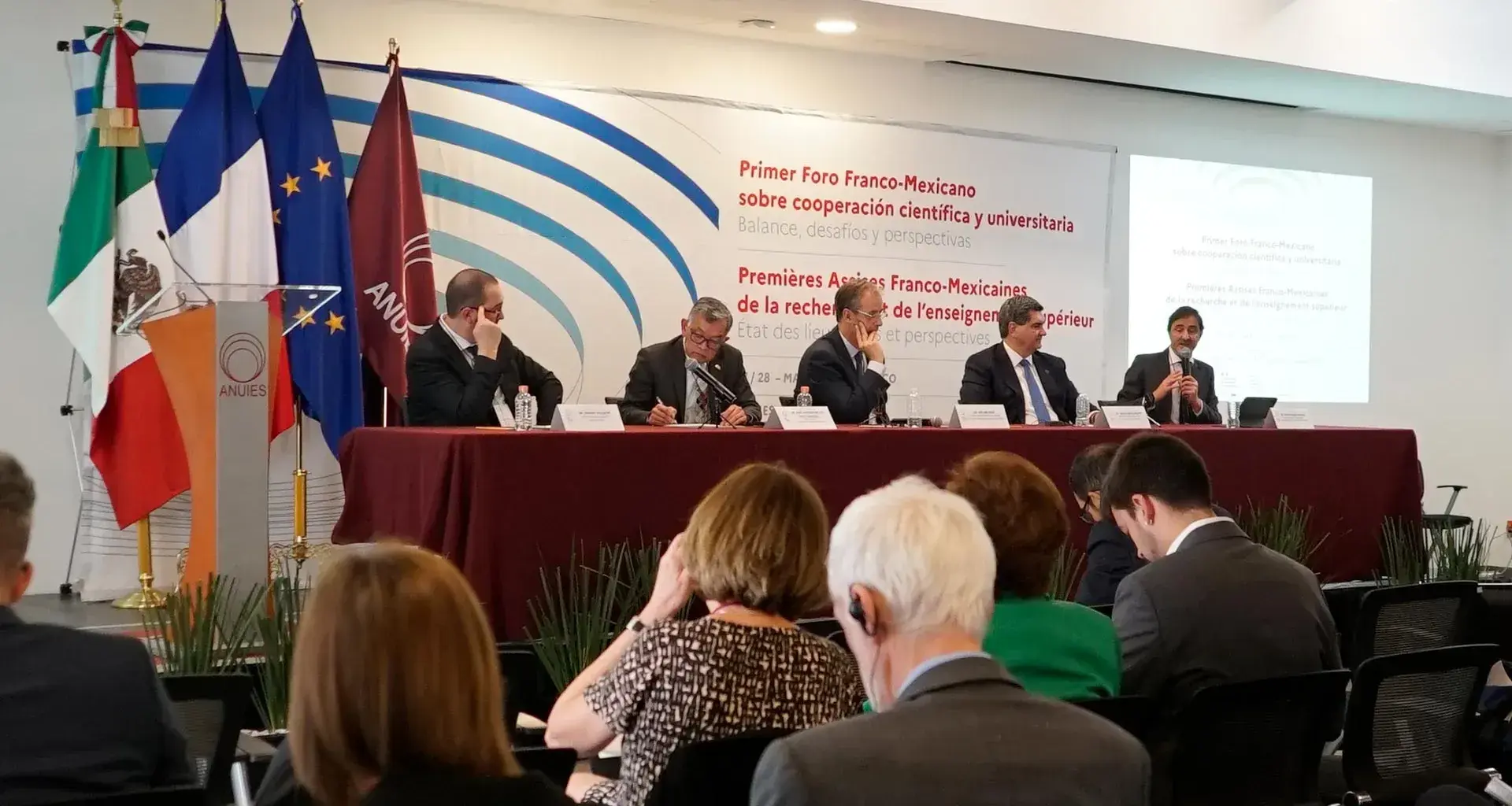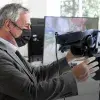During the Franco-Mexico Forum on scientific and university cooperation, David Garza Salazar, Rector and Executive President of Tec de Monterrey, highlighted the importance of internationalization for the professional development and global competitiveness of students.
“For us at Tecnológico de Monterrey, internationalization has been a definite priority for several decades now.”
According to the rector, it’s important to promote internationalization in the wake of the COVID-19 pandemic, which will help foster interculturalism and broaden students’ global vision.
He also said that for these strategies to work, they must be followed by actions. In the Tec’s case, the Office of the Vice Rector for Internationalization is in charge of identifying these areas of opportunity and deciding the path to follow as an institution.
“For internationalization strategies to work properly, they have to be top priorities. This is part of our Strategic Plan, in which we aim to promote the three ‘I’s: Investigation, Innovation, and Internationalization,” said the Tec’s rector.
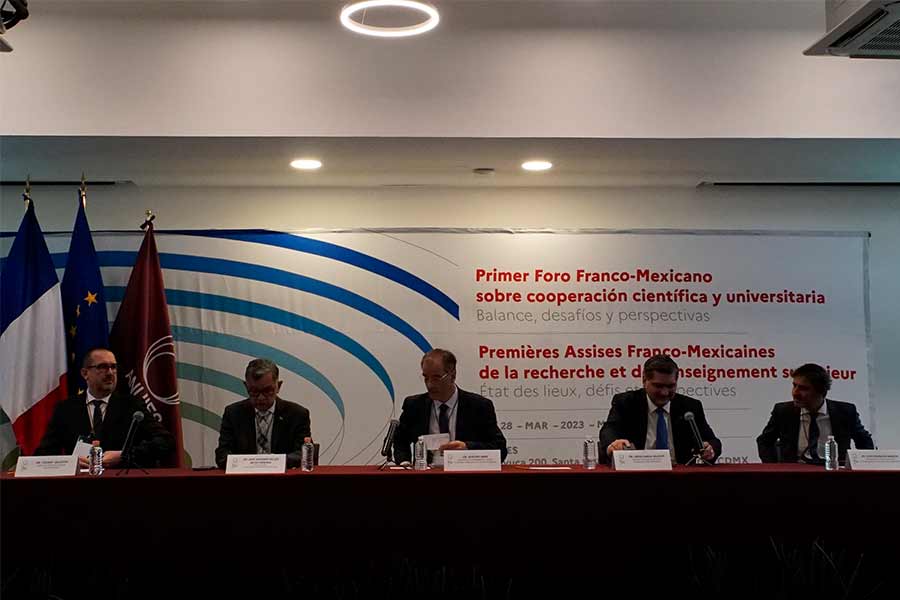
The Forum, organized by the Embassy of France in Mexico and the National Association of Universities and Higher Education Institutions (ANUIES for its initials in Spanish) was attended by various educational institutions from France and Mexico.
Also participating in the forum were Adelino Braz, Cooperation and Cultural Action Officer at the Embassy of France in Mexico; Jean François Marchi, Vice President for International Affairs at Aix-Marseille University; José de los Reyes, Rector of the Metropolitan Autonomous University; and Thierry Valentin, Director of Campus France.
The importance of international mobility and cooperation
According to the rector of the Tec, international experiences throughout undergraduate education stand out when it comes to entering the global labor market.
“We’re fully convinced of the benefits of international mobility and collaboration. We’ve followed up on the graduates and we see that those who have had some experience of international mobility stand out after five or ten years over those who haven’t.”
In Garza’s opinion, internationalization is a tool to develop more tolerance, civic engagement, and leadership skills in students.
“At Tecnológico de Monterrey, internationalization has been a priority for several decades now” - David Garza.
Adelino Braz, Cooperation and Cultural Action Officer at the Embassy of France in Mexico, highlighted the role of higher education in the development of global skills.
“The role of higher education is obviously to convey knowledge and train young people, but above all it’s about giving them the opportunity to acquire academic skills that can then be recognized in the international labor market.
“Today, higher education is no longer limited by the borders of a state. Instead, we must think globally, to open up the possibility of creating tools for this,” Braz said.
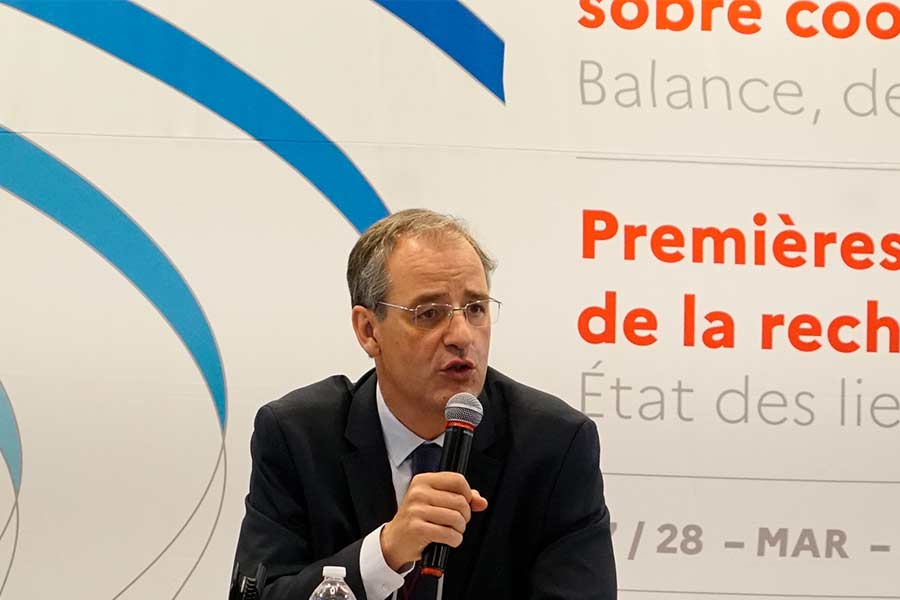
The Tec and its international presence
According to David Garza, the Tec has more than 500 agreements with institutions in 50 different countries. 90 of these are with more than 70 institutions in France.
This collaboration with international institutions has allowed around four out of ten students to graduate with some academic experience abroad.
“We’re setting a trend. Last year, we had unprecedented mobility, with more than seven thousand higher education students going abroad. Without a doubt, France is one of the main destinations,” said the rector.
He recalled that at the end of 2021, the Tec and the Embassy of France in Mexico signed a cooperation agreement to teach different academic disciplines such as journalism, architecture, and social sciences.
“Last year, we had unprecedented mobility, with more than seven thousand higher education students going abroad.” - David Garza.
The challenges of internationalization
Despite the Tec’s progress in student mobility, the rector pointed out that financing international experiences is one of the challenges that higher education institutions face today when promoting internationalization.
“At the Tec, one out of every two students have some kind of scholarship, so mobility abroad becomes a challenge.”
“What alternatives have we used to address this issue? Scholarships have been granted by local governments, agencies, foreign governments, and the private sector,” said Garza.
Another alternative implemented by the Tec to mitigate the funding challenge has been to find opportunities in international companies or industries for students to carry out their research stays.
The Tec rector highlighted how the recent COVID-19 pandemic opened up opportunities to promote other types of international experiences to students, such as virtual mobility.
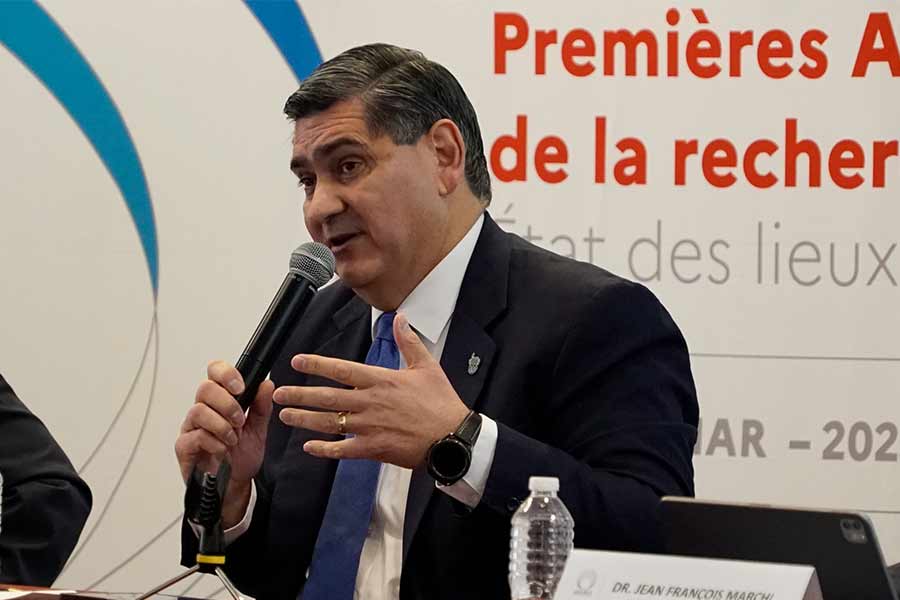
“It’s important to clarify that virtual mobility is never going to replace the experience of face-to-face mobility, but we recognize that virtual mobility can be an interesting and accessible complement for those who don’t have the opportunity for face-to-face mobility,” he explained.
During the pandemic, the Tec promoted its educational program called Global Shared Learning Classroom (GSL Classroom), an initiative that promotes international experiences in a virtual format and in which more than 10,000 Tec and foreign students have participated.
“The model is based on an agreement to teach a class with a professor from another university, with one to seven weeks being taught jointly between the two institutions.”
“This has been very successful because of the interaction with other institutions and because our students have the opportunity to form bonds and collaborate in the classroom,” he said.
Initiatives such as this have also contributed to expanding the institution’s faculty to an international level.
“We have on-site visiting professors, but we started with virtual ones during the pandemic. Now, post-pandemic, we’ve 150 international professors participating as virtual visitors,” said the Tec’s rector.
Regarding the language barrier challenge to internationalization, Garza explained the actions that the Tec has taken to promote learning a second or third language to students.
“We’ve promoted language learning a lot in high schools, especially French, which I’d say is our students’ main choice for a second language.”
“At the university level, we’ve created a language center, which provides training in more than 12 languages at different levels,” he said.
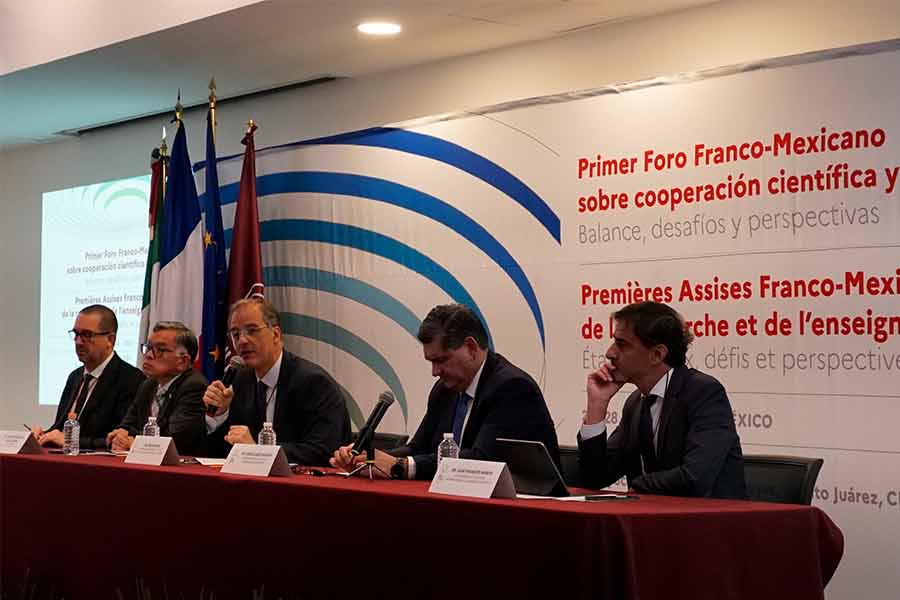
Finally, David Garza highlighted the global challenges we face today as a society and the importance of international collaboration in education to overcome them.
“In a divided world, collaboration is needed more than ever. We’re facing political and economic division, climate change, inequality, and democratic regression.
“We’re convinced that international collaboration between universities, which was optional in the past, is now something that should be mandatory, and we want to know how we can expand and improve it,” he concluded.
READ MORE:

